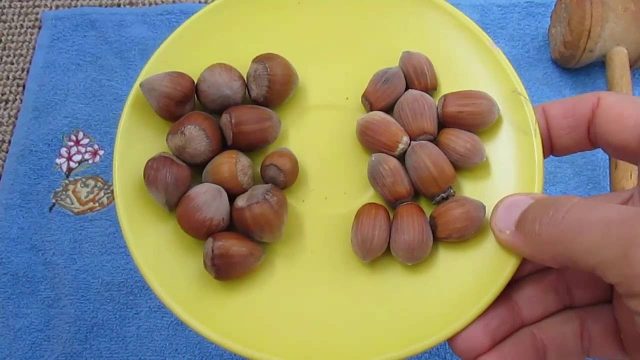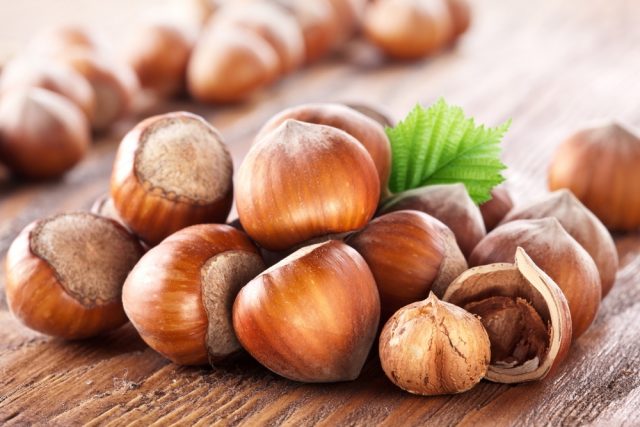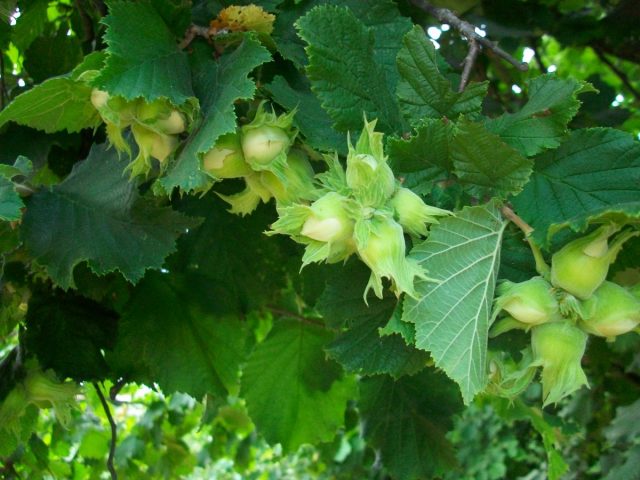Content
Due to its high yield and unpretentiousness, hazelnuts are so fond of many gardeners. It is important to bear in mind that it is quite difficult to get seedlings on your own, which is why it is recommended to purchase them in specialized stores. Hazelnuts grow not only in warm and sunny regions, but can also grow in Siberia.In this case, you will need to choose frost-resistant varieties and, if possible, cover for the winter.
Hazel and hazelnut - what is the difference
Before considering the differences between hazelnuts and hazelnuts, it should be borne in mind that they belong to the same family, as a result of which they have the same composition, useful properties, and external similarity. A distinctive feature is the fact that hazelnuts are cultivated, and hazel is a wild tree.
Hazelnut fruits are much larger than those of hazel, they have a rich composition, which includes nutrients, proteins and fats. In turn, hazel is much more hardy, tolerates low temperature conditions perfectly, which cannot be said about its relative. Despite this, hazelnuts can be grown in many regions of Russia, but in most cases they need shelter for the winter.
What hazelnuts look like
Hazelnut is a deciduous shrub that can reach a height of up to 10 m. Hazelnut bark has an ash-gray hue, shoots are red-green, rather thick. Leaves are oval or heart-shaped, slightly pointed at the edge, in addition, the leaves have a serrated border, the color of which can vary from green to crimson. The width of the leaves is about 6 cm, the length reaches 12 cm.
During the flowering period, flowers of two sexes appear - male and female. Male flowers resemble earrings in shape, the length of which is 10 cm. Female flowers are red and oblong buds. Nuts, as a rule, are egg-shaped, the length can reach 3 cm, the kernel is protected by a strong shell.
As a rule, flowering takes place throughout the entire winter period and ends only in early spring. In winter, hazelnuts attract the eye with multi-colored earrings, which can be green, orange or pink. After pollination has been carried out, the catkins turn yellow.
Hazelnuts have a fairly developed root system, they can grow in shaded areas, as a result of which they can be grown even on slopes. High yields can be achieved only if hazel is grown on a flat, sunny area, which is protected from strong gusts of wind.
What hazel looks like
If we take into account the description and photo of common hazel, then it is worth noting that the appearance resembles a shrub, the height of which can reach up to 5-7 m.In some cases, you can find rather large specimens up to 10 m high.Hazel consists of a large number of fluffy trunks and branches ... In spring you can see a lot of bees and insects on the bushes, in autumn hazel attracts birds and squirrels.
The bark of hazel can be light gray or brown, the structure is smooth. Hazel is covered with rather large and wide leaves.
Shrub grows in ravines or on the edges.During the flowering period, you can see yellow or golden earrings hanging down - this is how male flowers look. Flowering occurs at the end of March or at the beginning of April - depending on the temperature regime and weather conditions.
What does a hazelnut look like?
To understand what the fruit looks like, you can see a photo of a hazelnut. Nuts have a spherical shape, the shell is light brown. Fruits are large enough to bear fruit actively every year.
Due to their unique chemical composition, nuts are highly valued by consumers. The content of proteins, fats and carbohydrates is 98%. Since, after eating, the kernels are quickly absorbed and digested, the body gets maximum benefits.
Where does hazelnut grow
Hazelnuts, the height of which can reach in some cases up to 10 m, can grow not only in Russia and Siberia, but also in the following fears:
- Turkey;
- Italy;
- France;
- Sweden;
- America;
- Germany.
As you can see, hazelnuts can grow in a large number of countries, which is facilitated by the unpretentiousness of this variety of nuts. As practice shows, most varieties of hazelnuts love warmth and sun, and this is not surprising, because its predecessors grew exclusively on the sea coasts.
The best finished products are supplied from Turkey. In warm countries, the largest and most useful fruits are obtained. In Russia, hazelnuts can be found in the Crimea and the Caucasus. It should also be borne in mind that finished products are supplied to Russia from Spain, Italy, and China.
Botanical description of hazel
Hazel hazel belongs to a shrub or tree-like culture, the height of which varies from 2 to 5 m. The crown can be ovoid or spherical, slightly flat in shape. The leaves are oval or rounded, the top is narrowed. The leaf plate is dark green above and green below.
Male flowers are collected in multi-flowered catkins, while female flowers grow in pairs. The flowering period is in spring and summer. After flowering is complete, the process of fruit formation begins. Fruiting occurs at the end of summer.
How hazelnuts bloom
Hazelnuts have flowers of different sexes. As a rule, male ones are in the form of earrings, female ones resemble small buds. Up to 5 earrings are formed from each bud, the length of which is 10 cm. The female flower consists of a pistil and an undeveloped perianth.
At the moment when the outdoor temperature reaches + 12 ° C and above, the active growth of earrings begins, and they develop much faster in dry weather. In rainy weather, flowering will be late. After the formation of catkins has come to an end, the release of pollen begins. Ovaries are formed after 2 months - at the beginning of summer.
Frosts that come at a time when the female flowers are already pollinated are especially dangerous. In this case, you can lose almost the entire crop. Shelters are used to protect hazelnuts from frost. For Siberia, you can choose winter-hardy varieties that will not freeze out in the spring. It should be borne in mind that the flowering of this variety of hazelnuts will be long and late.
How hazelnuts grow
Hazelnuts can grow on almost any type of soil, as it is an unpretentious plant. It is important to take into account only one point - it is not recommended to plant this nut variety on swampy, sandy and saline soils - in such conditions, hazelnuts cannot grow.
The optimal solution would be to choose slopes and plains where rivers do not dry up. This choice is due to the fact that a large amount of moisture is required for normal growth and obtaining a good harvest.If planting material is planted on the south side, then an early awakening occurs, as a result of which the buds begin to die during frosts. During the landing process, it should be borne in mind that the place must be protected from strong gusts of wind.
When the hazelnut ripens
The ripening period for hazelnuts occurs in the second half of July and lasts until the end of September. At the initial stage of ripening, the fruits are green - this means that it is too early to harvest them. Also, do not rush and collect fruits during the ripening process. This is due to the fact that unripe hazelnuts cannot be stored for a long time, while the kernels dry out rather quickly.
The degree of maturity is determined by the color of the peel. At the moment when the fruits ripen, they have a brown or yellow shade of the shell - this happens in August. As soon as the nuts have changed color, you can start harvesting.
Conclusion
Hazelnuts grow not only in Russia, but also far beyond its borders. More than 75% of finished products come from Turkey, where hazelnuts are mainly grown.











